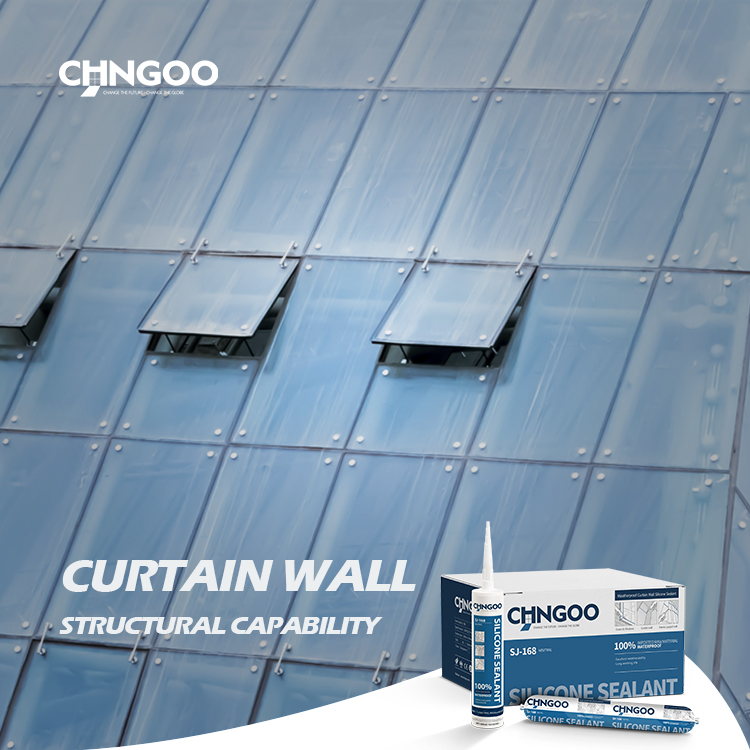CHNGOO Ethan,16th,Jan.,2024
Silicone sealants, with their remarkable versatility and adhesive properties, have become essential players in the world of construction and DIY projects. These compounds, derived from silicone polymers, offer a wide range of applications due to their unique characteristics. This essay embarks on an exploration of silicone sealants, unraveling their uses, understanding their limitations, and delving into questions about their waterproofing capabilities and permanence. From sealing joints to addressing potential drawbacks, this examination aims to provide a comprehensive understanding of silicone sealants and their role in various projects.

What are silicone sealants used for?
Silicone sealants find applications across diverse industries, serving as robust solutions for sealing and bonding. In construction, they are commonly used to seal joints in windows, doors, and other architectural elements. Their flexibility, durability, and resistance to environmental factors make them suitable for outdoor applications. In addition, silicone sealants are employed in DIY projects for tasks such as repairing leaks in plumbing, sealing gaps, and creating a moisture-resistant barrier in bathrooms and kitchens. Their ability to adhere to various surfaces, including glass, metal, and plastic, enhances their utility in a wide array of projects.

When should you not use silicone sealant?
While silicone sealants offer versatile applications, there are situations where their use may not be advisable. In areas with constant exposure to extreme temperatures or where the sealant is subjected to heavy physical stress, alternative sealants with higher temperature resistance or greater structural strength may be more suitable. Additionally, surfaces that require frequent painting or are porous might not provide an ideal substrate for silicone sealants. It's crucial to consider the specific demands of the project and select sealants accordingly to ensure optimal performance and longevity.

How waterproof is silicone?
Silicone sealants are renowned for their excellent waterproofing capabilities. When applied correctly and allowed to cure fully, they create a watertight barrier that prevents the penetration of moisture. This makes silicone sealants ideal for applications in areas prone to water exposure, such as bathrooms, kitchens, and outdoor fixtures. However, it's essential to ensure proper surface preparation and application to maximize the waterproofing effectiveness. Regular maintenance and reapplication may be necessary over time, especially in areas with significant water exposure.

What is the disadvantage of silicone sealant?
While silicone sealants offer numerous advantages, they are not without drawbacks. One significant disadvantage is their limited paintability. Once cured, silicone sealants form a non-porous surface, making it challenging for paint to adhere effectively. Additionally, silicone sealants are not recommended for use on surfaces that require frequent painting. Another consideration is their vulnerability to certain solvents, which may compromise their integrity over time. It's essential to carefully assess the specific requirements of the project and weigh the advantages against the disadvantages when choosing silicone sealants.

Is silicone sealant permanent?
Silicone sealants are considered durable and long-lasting, but whether they are considered permanent depends on the context. While they offer excellent longevity and resistance to environmental factors, they may need periodic maintenance and, in some cases, reapplication. Factors such as exposure to UV radiation, extreme temperatures, and physical stress can impact the lifespan of silicone sealants. In applications where permanence is crucial, such as in structural glazing or certain industrial settings, it's advisable to assess the specific formulation and intended use of the silicone sealant to ensure its compatibility with the desired permanence.

Conclusion:
In conclusion, silicone sealants stand as versatile and indispensable solutions in the realm of construction and DIY projects. Their unique properties make them suitable for a wide array of applications, ranging from sealing joints in buildings to addressing leaks in plumbing. Understanding when to use and when to avoid silicone sealants is essential for maximizing their effectiveness. Their remarkable waterproofing capabilities make them ideal for areas with moisture exposure, yet their limitations, such as limited paintability and vulnerability to certain solvents, must be considered. While silicone sealants offer longevity, the concept of their permanence is relative and depends on various factors. In the tapestry of construction materials, silicone sealants weave a story of adaptability, resilience, and the need for informed decision-making to ensure successful and enduring projects.